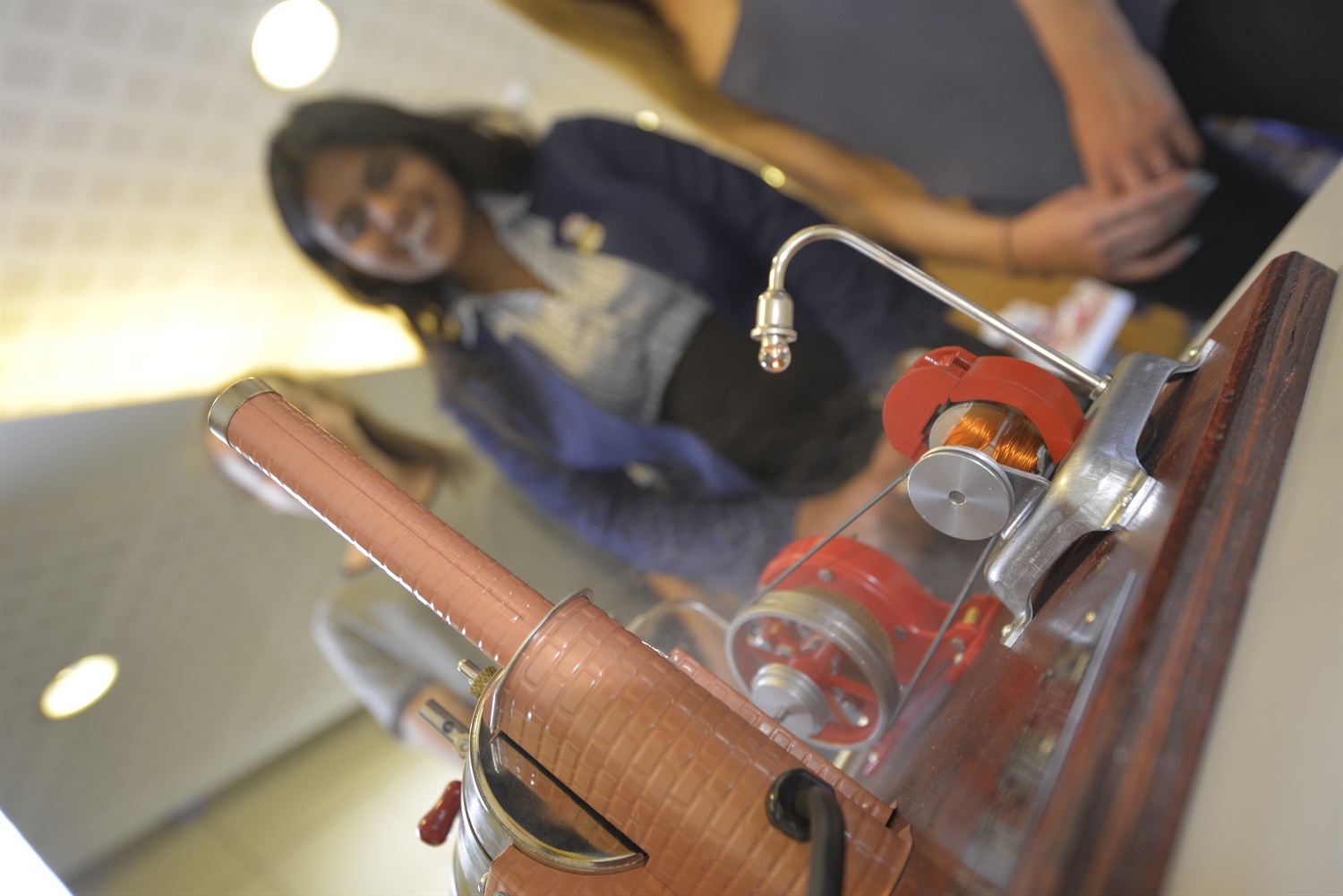
NI Western Branch has developed a relationship with At-Bristol, a leading Science centre in the heart of Bristol, to help to support children with their science learning. In response to an NI charitable donation, At-Bristol has developed a workshop targeted at Key Stage 3 and 4 (children aged 13 – 16) designed to provide an interactive experience for children in support of the GCSE science curriculum.
The NI workshop lasts about an hour and a half and is called Let there be light! Western Branch worked with At-Bristol in the development and trialling of this workshop, attending the dress rehearsal (see photos!)
The workshop begins with a demonstration of a working model steam engine driving a turbine to rotate a copper coil in a magnetic field, generate electricity and light an LED street light. This is intended to demonstrate the sequence of events in converting fuel to electricity, helping students to visualise the process and hence remember the order.
Later in the workshop, students use hand held dynamos to generate electricity, and feed it into a table-top model of the National Grid, with different groups representing different energy sources (nuclear, fossil fuel, hydro, solar or wind). On the other side of the table, “consumers” simulate factory shutdowns and world cup finals to demonstrate some of the challenges of balancing supply and demand. The workshop culminates in a discussion of the different energy sources.
To date, 103 children have benefitted from attending the pilot phase of this workshop. Verbal feedback has been very good. Let There Be Light! has now been integrated into At-Bristol Science Centre’s core offering and is being featured in their Secondary education brochure for 2015-16 which is sent to 920 schools. It is set to run for several years.
Students have all participated enthusiastically and enjoyed the opportunity to see their classroom theory made real – creating a lasting impression that has engaged them strongly with the challenges of meeting our energy needs. We are now looking into working with the network of Science Centres to see whether it is feasible to roll the workshop out elsewhere in the UK.